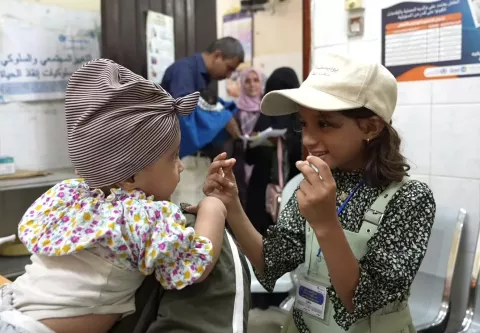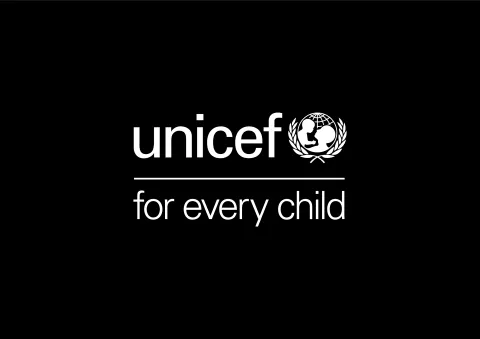Yemen: New report reveals inequities have greatest impact on children
First ever Survey Report on National Social Protection Monitoring is launched
SANA’A, Yemen, 26 June 2014 – Nutrition remains a major challenge with high levels of stunting wasting and underweight, cutting across both rich and poor. According to the new report which was jointly launched by the Ministries of Planning and International Cooperation and Social Affairs and Labour, in collaboration with UNICEF, almost half of all children under the age of five in Yemen are chronically malnourished; fifty one per cent of these are amongst the poorest, whilst twenty four per cent are amongst the richest.
The National Social Protection Monitoring Survey is the first survey of its kind in the Middle East and North Africa Region. The survey has two key objectives, the first is to monitor social protection and living conditions of poor and vulnerable households in Yemen; and the second is to provide evidence on the impact of the public cash transfer programme administered by the Social Welfare Fund (SWF). The Report provides national data on a range of issues from housing; water and sanitation; education; child health and nutrition; child protection; and food security to work, income and livelihoods.
Around half of the Yemen’s estimated 23 million population lives below the poverty line. “The importance of the NSPMS comes from the fact that it provides the data necessary for the Government to formulate a comprehensive and adequate social protection programme to better tackle poverty and social inequities in Yemen”, says Dr. Mohammed Al-Sa’adi, Yemen’s Minister of Planning and International Cooperation.
Other key findings include:
In the education sector, the poorest children are less likely to be in school. The Report reveals that only 48 per cent of the poorest children are enrolled in basic education compared with 88 per cent of the richest children; 38 per cent of the poorest girls are enrolled in basic education compared with 88 per cent of the richest girls and absenteeism due to the need to work is the highest among children from the poorest quintile.
In the area of child protection, Birth registration rates have decreased from 22 per cent in 2006 to 15 per cent in 2013. Only 1% of the poorest children under 5 years are registered compared to 51 per cent of children in richest households.
Access to safe and clean water for drinking and domestic use is a fundamental human right. However only 6 per cent of the poorest households are using improved sanitation facilities compared to 97 per cent of the richest. Similarly, 36 per cent of Yemenis in the poorest households have to walk more than 30 minutes to access water, compared to only 1 per cent among the richest.
“This Report presents another stark reality of the dire situation of children in Yemen,” says Jeremy Hopkins, Acting UNICEF Representative in Yemen. “The roll out and implementation of an effective social protection mechanism at sub- national, community and household level, specifically targeting poor children, will require the continued strong leadership of the Government and a robust response from development and humanitarian partners” Hopkins emphasized.
A recent Oxfam Report also highlights that millions of Yemenis are going hungry, drinking unsafe water and increasingly falling between the cracks of an inadequate social safety net, as they bear the brunt of yet another fuel crisis. This report makes a strong call to the Government of Yemen to increase the provision of social welfare while also undertaking public finance reform, to ensure the safety of all Yemenis.
As the world commemorates the 25th Anniversary of the Convention on the Rights of the Child this year, crossing the finish line, in addressing the Millennium Development Goals (MDGs), for countries like Yemen, would require quadruple effort at all levels, to ensure the fulfilment of the basic rights of every child, especially the most vulnerable.
###
For more information, please contact:
Alison Parker, Chief of Communication, UNICEF Yemen: aparker@unicef.org, Tel: +967712223001
Buthaina Al-Iryani, Social Protection Specialist, UNICEF Yemen – Cell +967 - 712223470, baliryani@unicef.org
Media contacts
About UNICEF
UNICEF promotes the rights and wellbeing of every child, in everything we do. Together with our partners, we work in 190 countries and territories to translate that commitment into practical action, focusing special effort on reaching the most vulnerable and excluded children, to the benefit of all children, everywhere.
For more information about UNICEF and its work for children, visit www.unicef.org.
Follow UNICEF on Twitter and Facebook
Follow UNICEF Yemen on Facebook: www.facebook.com/unicefyemen | www.facebook.com/unicefyemen.ar




